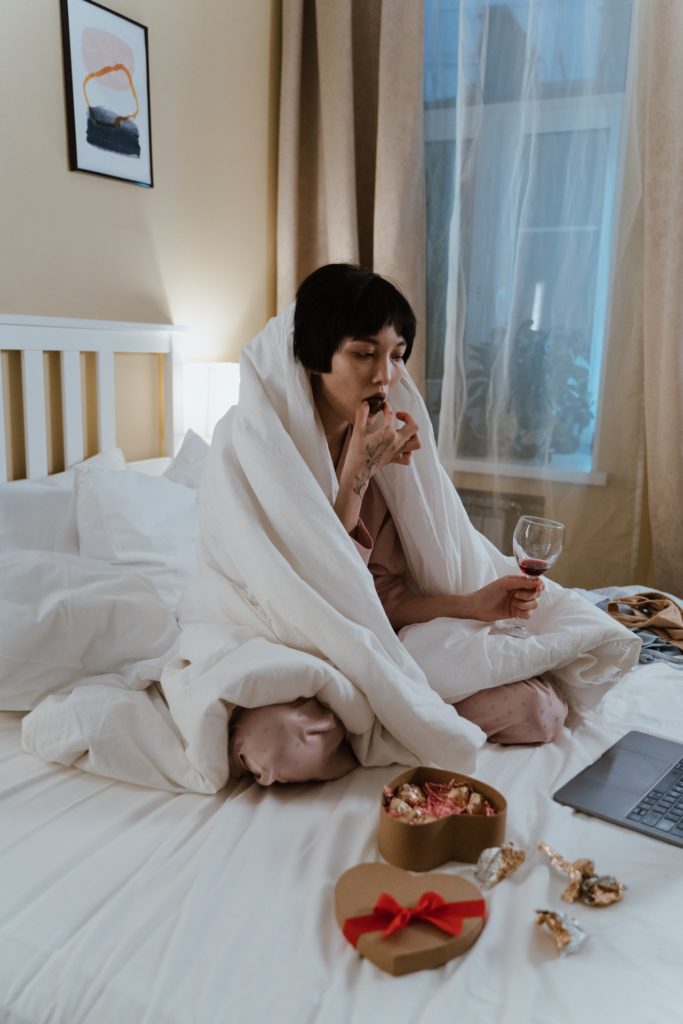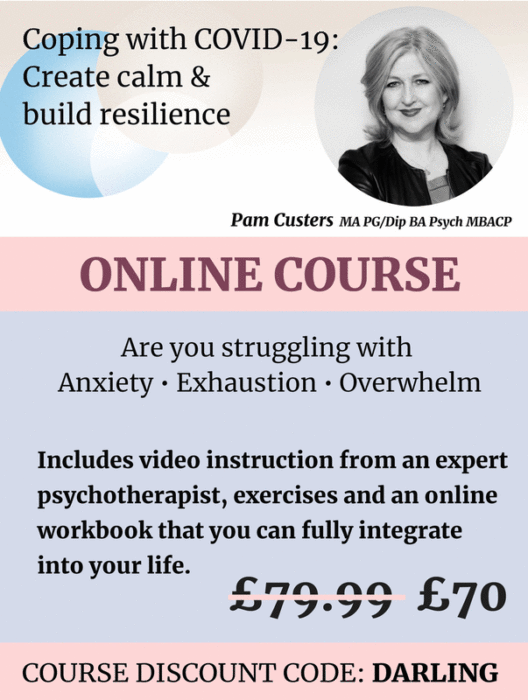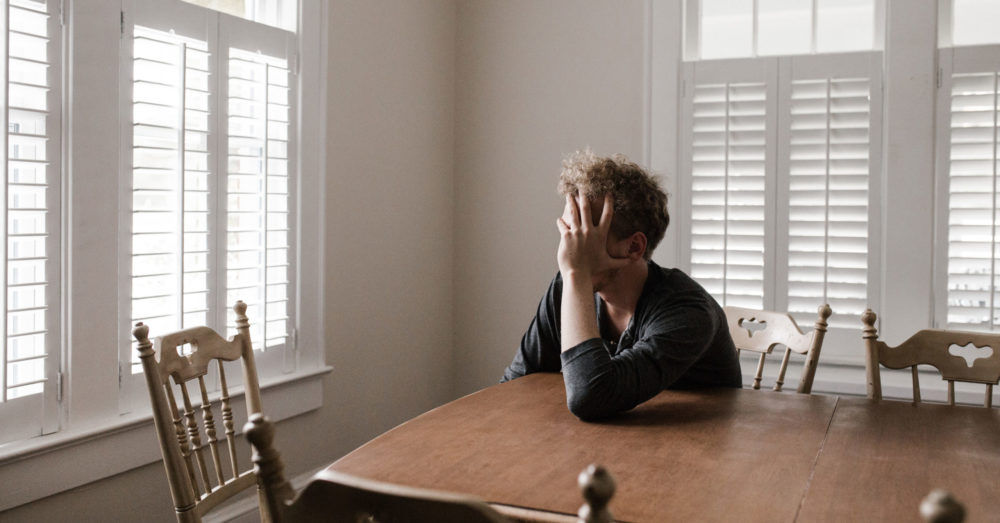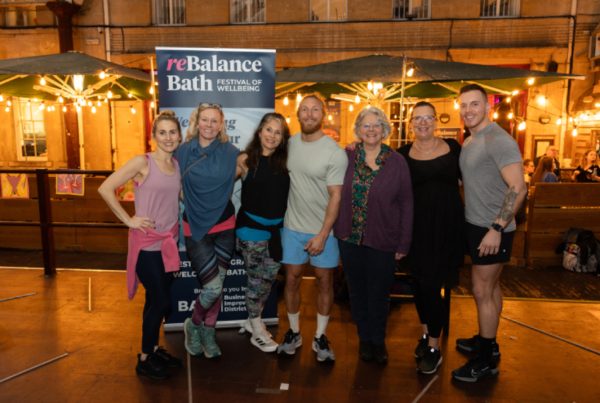Are you struggling with an anxious knot in your stomach? Are you feeling overwhelmed and exhausted? Finding that COVID is taking over your life and your mood? Our Therapist Pam Custers has devised a ‘Coping with COVID course to build resilience and create calm.
Special Darling discount code: DARLING
Here we are in another lockdown almost one year later! So by now we know the drill. We have got the masks and hand gel at the ready. We have organised our bubbles and we have our personal opinions on the closure of airports. What about our relationships? The past year has been an exercise of relations in captivity. To say that our relationships have been stretched is an understatement. Many of us have enjoyed spending more time together, after all is this not what we say to our partners at the end of our holidays, if only we could spend more time?

RELATIONSHIPS UNDER THREAT
But now our relationships have been stripped back. The scaffolding that we rely on has been taken away. The support that we would have gained from family friends and gym buddies to name a few are not available. Apart from not having the support structures we are now battling with uncertainty, anxiety and the stress that we are all living under. Couple this with home schooling and the impact of the prolonged time spent in each other’s company and we are facing the perfect storm.
MANAGING ANXIETY
We have to add another component which is our own personal style of managing stress and anxiety. Our attachment styles. Are you the one reminding everyone to socially distance before you walk out the door? Or perhaps you may be the one that would really like your partner to stop nagging as you are abiding by the rules. Our attachment styles is nature’s way for us to keep safe in times when we may be triggered by anxiety and stress.
YOUR CHILDHOOD ATTACHMENT STYLES
Attachment styles develop during childhood but become relatively stable personality traits that persist across our life span and shape our relationships. There are no good or bad attachment styles simply different. It’s our internal operating system that can be triggered in times of stress. So we are more than likely be experiencing the behaviour that translates from that trigger.
In very simple terms the three styles are secure, preoccupied and avoidant. Those who are generally secure will likely be clear about their needs and if they do become distressed it will likely be appropriate for the situation. They are likely to value the social connection and enjoy staying close to those they are close with emotionally. Those who are preoccupied may well be feeling more anxious and fearful. When they are triggered they are likely take longer to bring their emotions back into balance. They may also become angry if they perceive they are not getting the support they wish. Those with an anxious attachment style can be easily calmed by a partner if their feelings are acknowledged. Those who have an avoidant operating system may take a very practical and intellectual approach. When triggered they may deny they are stressed and may withdraw. The challenge comes in relationships when a partnership is with the two ends of the spectrum.
HOW TO REGAIN YOUR EMOTIONAL EQUILIBRIUM
The trick here is to firstly find the ability to regain our emotional equilibrium even in the face of such uncertainty. We are all masters of our own inner world and there are simple ways to find our way back to calm and equanimity. We have designed a highly successful course that can teach you to be able to understand how our brains are triggered. You will then understand how we have the antidote to stress within ourselves. By using techniques the trigger our nervous system to produce our own internal calm in a matter of minutes. By releasing the stress and returning our operating system back to a place of calm we are giving our relationships the best chance to navigate this challenging time.
Using evidence-based tools and techniques, you will learn how to cope with the stress and anxiety triggered by the pandemic.
MODULES INCLUDE:
- Discover your brain, anxiety and you
- Sneaky anxiety triggers you probably have every day
- Create calm in minutes using neurological hacks
- Optimise yourself for long term resilience
- Discover the Golden tipping point to build a more positive mindset
This online short course includes video instruction from an expert psychotherapist, exercises and an online workbook so that you can fully integrate this into your life.
Your instructor is Pam Custers MA PG/Dip BA Psych MBACP. She is a psychotherapist and coach. Specialising in working with professionals who are experiencing anxiety stress and burnout, Pam has been seen on TV, Radio and in the press and is a sought-after speaker and coach.
Join me on line and use this exclusive DISCOUNT code: DARLING to get the course for only £70.
https://relatability.teachable.com/p/coping-with-covid
Pam Custers holds an MA, BA (Hons) BACPand runs The Relationship Practice www.therelationshippractice.com

You may also enjoy reading https://darlingmagazine.co.uk/wellness/dr-naomi-potter-from-menopause-care/




